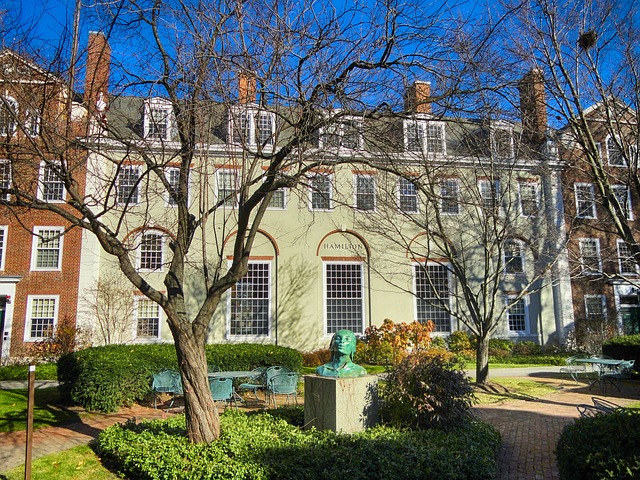
No More "Chevron Deference": A Primer for Nonprofits
12.19.2024 | Linda J. Rosenthal, JD

Since 2014, Harvard has been embroiled in a dicey affirmative-action lawsuit.
It has the unusual twist of pitting Asian-American applicants against those from other minority groups. Not until 2019 had the proceeding made its way to a decision at the trial level; a victory for Harvard. By late 2020, the defendant had prevailed in the First Appellate Circuit, too, in a ruling that was even more pro-Harvard than the trial court’s.
For the last two years, we’ve reported on the progress of this potentially explosive litigation (along with two other “juicy” lawsuits making headlines in the powerhouse “eds and meds” category of nonprofit organizations). See Recent Court Cases: Philanthropy Related (December 19, 2019), The Latest on Three Intriguing Nonprofit Lawsuits (April 6, 2021), and An Ed, A Med, And A Hybrid: Litigation Updates (June 30, 2021). [In a separate post, we’ll update the other two cases – the Mayo Clinic vs. the IRS, and conglomerate Sutter Health vs. the California Attorney General. Both have quieted down via long-hoped-for but not-entirely-assured settlements.]
But Students for Fair Admissions Inc. v. President & Fellows of Harvard College has just erupted into yet another blockbuster item on the U.S. Supreme Court’s docket. This week, on January 24, 2022, the justices – after many months of twists, turns, and delays – granted certiorari in this case in a “brief order.” Consolidated with another case, Students for Fair Admissions, Inc. v. University of North Carolina, it will likely be heard next fall.
“For decades, the question of affirmative action at the college level has been a highly emotional and politically charged issue.” The last time this issue was before the high court was in 2016 in Fisher v. University of Texas at Austin. There, the high court justices, by a 4-3 vote, narrowly affirmed that racial preferences in higher education continue to be allowable. See Affirmative action advocates shocked — and thrilled — by Supreme Court’s ruling in University of Texas case (June 23, 2016) Emma Brown & Danielle Douglas-Gabriel, The Washington Post.
But that was then and this is now. This Supreme Court is not the same body that heard the Texas case. See Supreme Court Will Hear Challenge to Affirmative Action at Harvard and U.N.C. (January 24, 2022) Adam Liptak & Anemona Hartocollis [“The court’s new conservative supermajority may be skeptical of admissions programs that take account of race to foster educational diversity.”]
See as well: Court will hear challenges to affirmative action at Harvard and University of North Carolina (January 24, 2022) Amy Howe, SCOTUSBlog [two cases asking for the tossing out of the landmark 2003 decision in Grutter v. Bollinger, holding that the University of Michigan could consider race as part of its efforts to assemble a diverse student body. “The decision to grant review in the two new cases suggests that the court’s conservative majority is poised to do just that.”]
“Affirmative action has repeatedly been administered last rites during the last five decades,” said Justin Driver, a law professor at Yale. “But these two cases unmistakably pose the gravest threats yet to affirmative action’s continued vitality.”
The headline in an NPR article also boldly suggests the likely precedent-crushing result in this high-profile case: The Supreme Court adds affirmative action to its potential hit list (January 24, 2022) Nina Totenberg, National Public Radio.
“[A]s expected,” we wrote in our April 2021 update, the losing student-applicant plaintiffs filed a writ of certiorari early in the year soon after the First District’s opinion. See Group that sued Harvard asks Supreme Court to end use of race in college admissions (February 25, 2021) Nick Anderson & Robert Barnes, The Washington Post.
Based solely on the recent history of the person who is the prime force behind this and other (successful) high-profile conservative legal victories in the past several years, there should have been little doubt that it was going to be full-steam-ahead for these litigants.
The two cases accepted, and now consolidated for hearing, are Students for Fair Admissions Inc. v. President & Fellows of Harvard College and Students for Fair Admissions, Inc. v. University of North Carolina.
“Both lawsuits were brought by Students for Fair Admissions, a group founded by Edward Blum, a legal entrepreneur who has organized many lawsuits challenging race-conscious admissions policies and voting rights laws, several of which have reached the Supreme Court.”
NPR’s Nina Totenberg describes Mr. Blum as “a conservative legal movement unto himself. The former financial adviser and onetime failed congressional candidate has been the driving force behind cases opposing affirmative action for years.” He also “spearheaded attacks on the 1965 Voting Rights Act, culminating in the court’s 2013 decision in Shelby County v. Holder, essentially gutting the law.
Mr. Blum was the (unsuccessful) driver of the 2016 University of Texas lawsuit, but he remains “undaunted in his attacks on affirmative action. After that loss, he “retooled his strategy, this time taking aim at Harvard and claiming that high-achieving Asian American students were being denied admission because of race.” He “filed the lawsuit before actually finding any” actual Asian-Americans who applied to but were rejected by Harvard.
The universities both won in federal trial courts, and the decision in Harvard’s favor was affirmed by a federal appeals court. (The Supreme Court accepted the North Carolina case directly from the trial court, bypassing the appellate level.)
“The main difference between the cases is that UNC is a state school and, as such, is subject to constitutional constraints that Harvard is not. Still, Harvard must comply with federal civil rights laws, which prohibit discrimination on the basis of race. By accepting both cases, the court can consider whether that public vs. private distinction matters for affirmative action.”
According to the New York Times’s Adam Liptak: “The cases will test the newly bolstered conservative majority’s commitment to precedent. As in recent cases on abortion, there are reasons to think that the majority will not hesitate to overrule major precedents if it views them to be egregiously wrong.”
He adds: “The possibility of a ruling that would either restrict or prohibit race as a consideration in admissions would reverberate widely across higher education and could fundamentally reshape college admissions in the years to come.
The full dockets, including all briefs including from the long period before the writ of certiorari was granted, are at: Students for Fair Admissions Inc. v. President & Fellows of Harvard College, Students for Fair Admissions, Inc. v. University of North Carolina, courtesy of SCOTUSBlog.
– Linda J. Rosenthal, J.D., FPLG Information & Research Director
